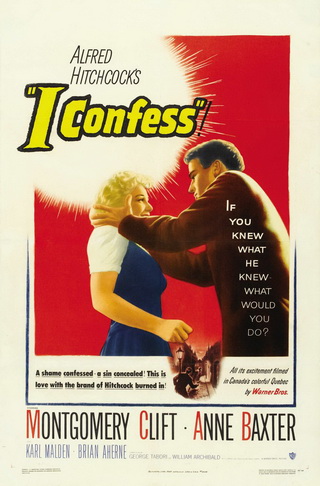Trying To Figure Out
What The Heck Is Going In A Film-A Case Study-Tom Cruise’s “The Last Samurai” (2003)
DVD Review
By Leslie Dumont
The Last Samurai,
starring Tom Cruise, Ken Wantanabe, 2003
Usually in doing film
reviews I watch the film, alone or with my companion to compare notes after viewing,
and then write a draft review from scratch. I do not usually look at the now
many film reviews provided by such companies as Netflix and the like on the
Internet. (The best by far is still American
Film Gazette which started out as a hard copy magazine about seventy years
ago and went to on-line about ten years ago and has reviewed over fifty
thousand films in that time, many reviews classics in the genre like that publication’s
Sam Lowell’s extensive and inclusive film noir series from the 1970s which
defined the genre in the wave of the French New Wave which went crazy over the
1930s-1940s material) With the film
under review though I was perplexed as to what my hook would be so I looked at
some thoughtful and familiar reviewers I have known and trust (despite the
cutthroat nature of the business personally between reviewers who take no
prisoners the reviews usually are spot
on) and found that they had missed the point or had gotten so caught up in the
action that they missed the real point which I will discuss in a minute after I
take a few of the views expressed to school.
Marlene Kalen, a
well-regarded reviewer and former colleague of Leslie Dumont now of this
publication at Women Today, seemed to
have dismissed the whole venture as just a violence-soaked way to put Tom
Cruise in a period piece (1870s Japan after the American Civil War when many of
the fighters of that war were free-booters, were ready and willing mercenaries
for whatever came up from training foreign armies in modern warfare to robbing
banks and trains a la the James gang and Cruise’s character, Captain Algren,
took a leap to the Orient for a private company working on behalf of the
Japanese government trying to modernize its army and put down a rebellion by
traditional samurai who were resisting those efforts). To Ms. Kalen Cruise,
along with Harrison Ford and the string of James Bond from Sean Connery on,
were hopped up on the male fantasy cave man taking on all comers to preserve,
well, preserve something. I have lost the figure, or it is not at hand but in a
film of some two and one-half hours Ms. Kalen noted over twenty separate
“battle, skirmish, fake battle” scenes including using children as foils for
the violence. While I might today have sided a bit with her general conclusion
about films, action films, which exist solely to keep people glued to their
respective seats in horror, fascination I think by modern standards, and given
the subject matter of the film which after all was about the demise of free
agent warrior culture in a country trying to modernize the film’s violence was
inherent in what was being produced.
Naturally if you want to
avoid talking endlessly about violence in modern films, and not so modern films
check out the gangster classics of the 1930s, then the next step is to fix on
the brotherhood, the multicultural brotherhood (Japanese and American) between
Captain Algren and the leading samurai, Kyoto, played by Ken Watanabe, around questions
of honor, valor, and service. That was the approach Lenny Lynch then of American Film Gazette took when he made
this out as one of the great buddy films in the tradition of Robert Redford and
the late Paul Newman where individuals who would not normally associate with
each other, would not normally interact in their respective occupations find a
serious bond by virtue of their common (maybe universal at least that was the
way Lenny broached the subject) regard for fellows who took honor, sacrifice
and expertise seriously. Maybe if Lenny had thought more about what he saw on
screen he would have seen that these two men in the end did not really
understand each other since Kyoto was trying to stave off the injurious effects
of modernization on Japanese society and Algren was barely more than a
well-paid, well-trained but vicious mercenary. A loner to boot.
A lot of people have
prattled on endlessly, Danny Lawrence, from Film
Today, for one about how the American Civil War was the harbinger of mass
military industrialization and that older values and occupation had to bow down
to what was coming, coming to America and to Japan and that to challenge that
was fool-hardly and unwise. Thus the Kyoto-Algren axis of the film was
misdirected and the railroad magnate Omura, and his agent Colonel
Bagley formerly of the Union Army as well, should have been held up as the model
of modernizers and agents of serious change whatever personal benefits they
would receive from such changes. The film according to Danny can be taken as a
cautionary tale about what happens to those who can’t keep up with social
changes and had to, should be left bury themselves in splendid isolation.
Action-faction, buddy-buddy
and holding the thumb in the dike may all have a place in a review of this film
but sometimes reviewers can’t see what is in front of them, can’t get out of
the way of their own shadows, can’t imagine the obvious as in this film. The key
here, maybe the only thing that gives this film any energy is the “boy meets
girl” aspect that none of the above reviewers had a clue about. (Remember I
told you the film review occupation is not for the faint-hearted, is more cutthroat
that any lawyers would dream possible and they consider themselves a pretty wild
lot when they get up a head of steam). Think about it. This Captain Algren, a
drunk, a stone-cold killer either while under orders or as a free-lancer, and a
guy you should hang on to your wallet when he is around is nowhere, is nothing
until his Japanese sweetie, Taka, whose husband he has off-handedly killed in battle
sobers him up, get him to take a bath, teaches him how the show works in Japan and
takes him in tow. Ms. Kalen may have counted up the number of violent acts
committed in the film but what about the more numerous significant glances between
Algren and Taka as the film rolls along. There will be problems as with any
pair who are from different cultures but Taka softened the rough edges off of
the good captain. The proof of what I say is obvious by the end of the film
when there is speculation about what happened to Captain Algren after the decisive
battle between Omura’s troops and the samurai warriors where Kyoto is killed
and the samurai legend extinguished except in lore and novels is done and his whereabouts
unknown. Does it really take a private detective like Phil Marlowe to figure out
he hightailed it back to his Taka. Like I have said elsewhere Hollywood has milked
this boy-girl theme a million times to good effect. Here as well.



